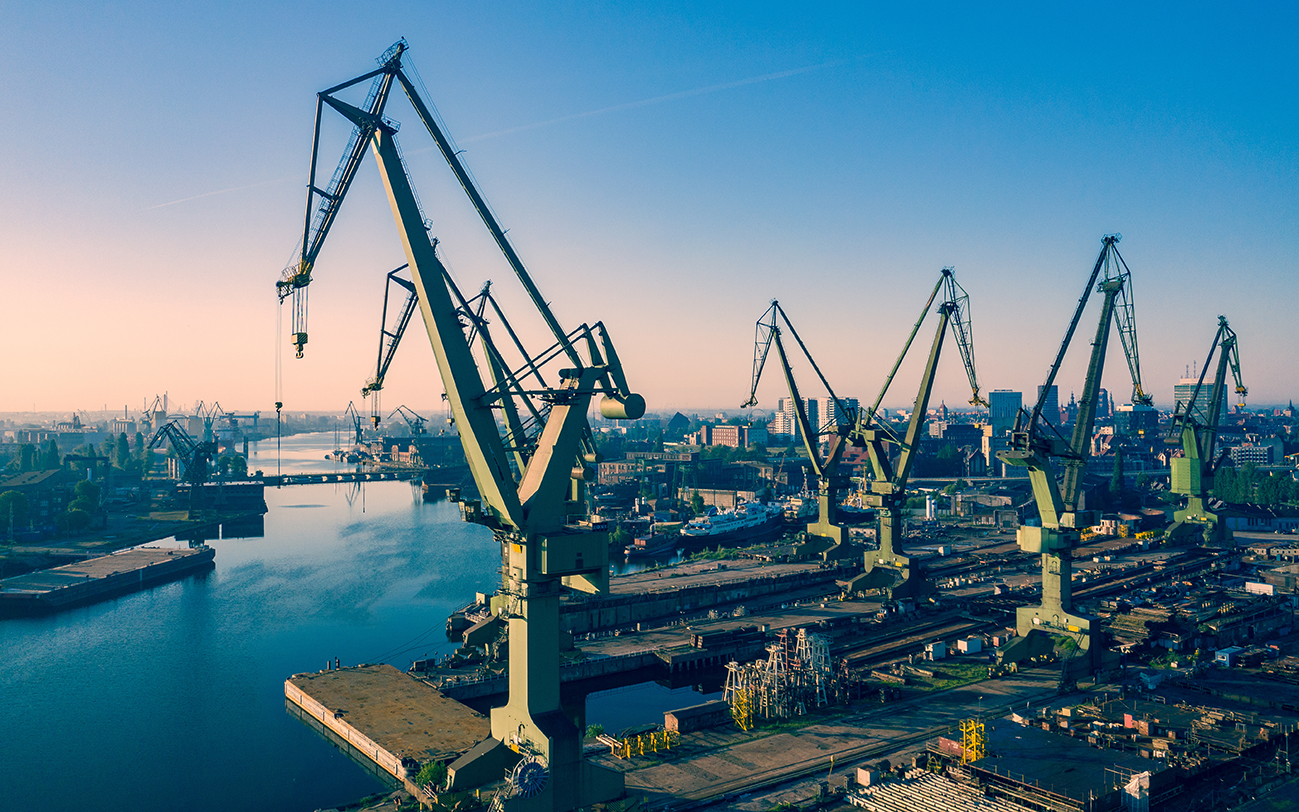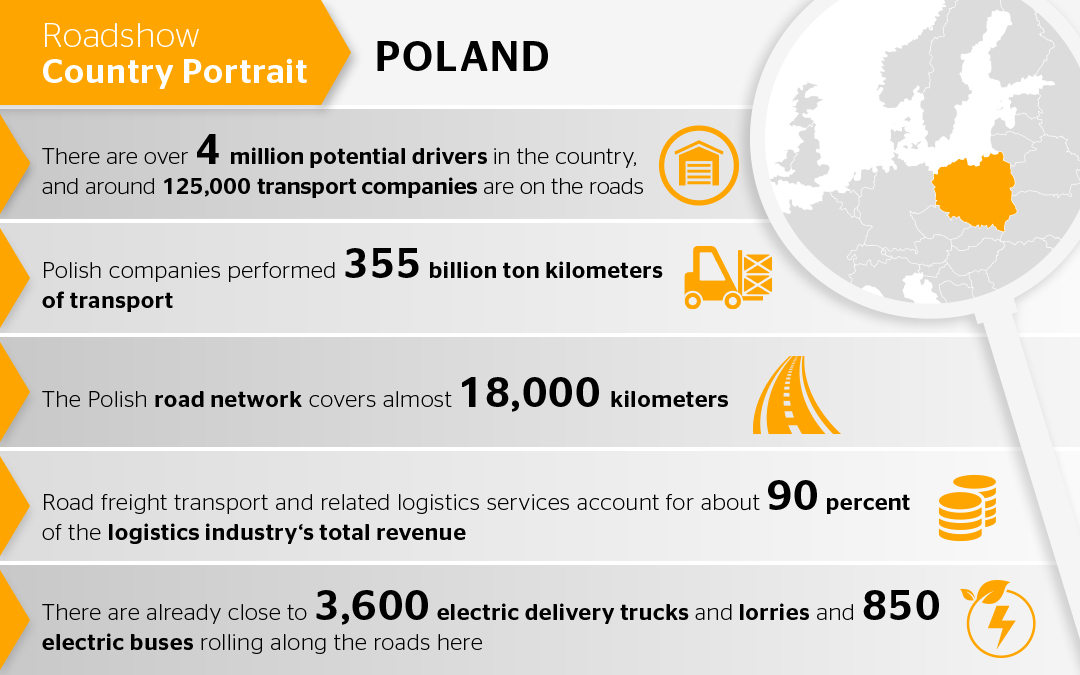The logistics sector in Poland is developing rapidly. Companies are opening new locations, introducing innovative solutions and expanding their services. After all, transportation plays a very important role here: There are over four million drivers in the country, and around 125,000 transport companies are on the roads. Nevertheless, there is still a shortage of a good 150,000 professional drivers. Fewer and fewer young Poles are interested in the profession, which is poorly paid compared with other countries, and there is a shortage of workers from Ukraine due to the war. In addition, high fuel prices are causing problems for the industry. In May 2023, a litre of diesel will cost around 6.89 Polish zloty (approx. 1.53 euros).

Trucks waiting for loading at parking lot at logistic warehouse in Poland. Photo: Adobe Stock
Important ports in Gdansk and Szczecin
In 2020, Polish companies performed 355 billion ton kilometers of transport. Road freight transport and related logistics services account for about 90 percent of the logistics industry’s total revenue, an estimated 41 billion euros. And although many companies also specialize in oversized goods, the most common goods transported are everyday necessities such as food, medicines and building materials. Waterway Transport also plays an important role: shipping is an important branch of Polish logistics. The ports in Gdansk and Szczecin are often the first European stop for goods from other continents.

Cranes at the famous shipyard of Gdansk. Photo: Adobe Stock
Different toll costs
The Polish road network covers almost 18,000 kilometers. 4,748 of them are high-speed roads, 1,776 are freeways and 2,972 are expressways. The network is constantly being modernized, with new sections of freeways and expressways being built. Toll collection on some highways has also recently been brought up to date – it can now be done via an app without drivers having to queue at barriers. Toll roads in Poland are operated by both the state and private companies. As a result, subsidized public sections alternate with more expensive private sections on the highways.
e-Mobility is also on the rise in Poland
Electric mobility in the Polish truck sector is not yet as developed as in the passenger car sector, but it is flourishing nonetheless. Companies are testing new vehicle models and increasingly using them regularly on their logistics routes. Many logistics companies operating in Poland, such as DB Schenker and DHL, are investing in new technologies and including electric vehicles in their fleets. As a result, there are already close to 3,600 electric delivery trucks and lorries and 850 electric buses rolling along the roads here.
Good public transport
Public transport is very well developed, especially in the major cities. The vehicle fleets are modern, the connections numerous, and the tickets are among the cheapest in Europe. Public transport companies often work together with private subcontractors. Intercity buses are mainly privately owned. While there are quite a few of them, they can’t compete with rail for long-distance travel.
Have you ever picked up a shipment from overseas from Polish ports? Where did the trip go? Write it in your comments!


0 Comments